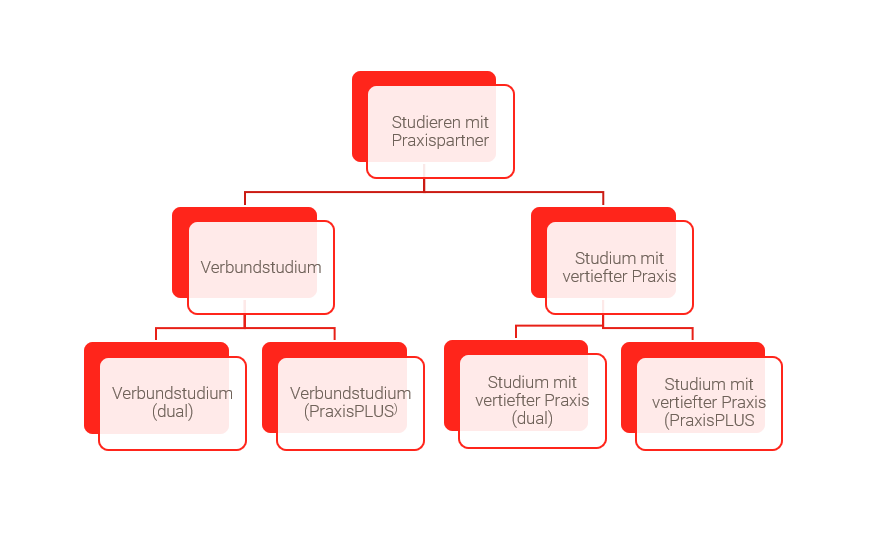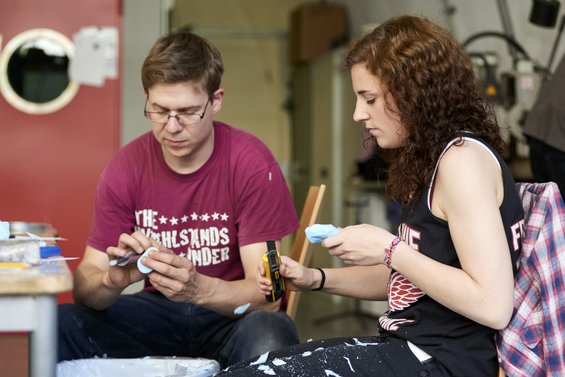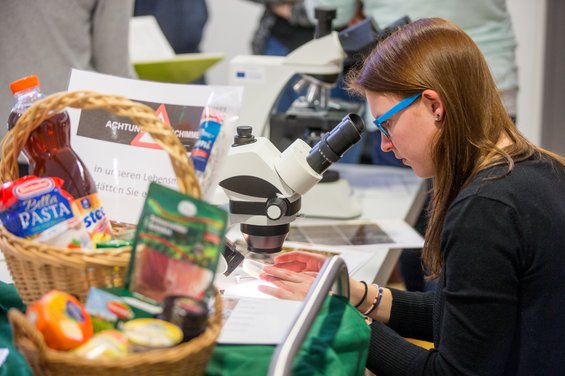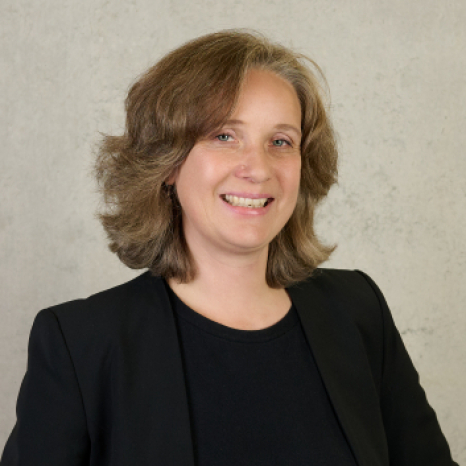Dual study
Studying with a practice partner
Do you want to study – but gain a lot of practical experience and test your knowledge directly under real conditions? Are you motivated and high-performing? Do you want to be familiar with business processes and have professional experience before you graduate? Do you want to earn your own money during your studies? Then studying with a practice partner could be just the right thing for you!
Studying with a practice partner: All options at a glance

Which degree programs can be studied with a practice partner?
How suitable a degree course is for studying with a practice partner depends on the field of study, the course content and processes. Studying with a practice partner is particularly feasible in the fields of engineering, computer science and business.
Coburg University of Applied Sciences has excellent links with companies in the Coburg/Kronach/Lichtenfels innovation triangle, particularly in the fields of mechanical engineering, electronics, 3D metal printing, services and the insurance industry, but also in other areas. Which degree courses can be studied in which variant is listed on the respective detail page of the degree course.
How do I find a practice partner?
Regardless of whether it is a combined degree course or a degree course with in-depth practical experience, you will have to find a practical partner yourself. Some employers advertise positions via the hochschule dual website or the university job exchange.
It can be more interesting and promising to take the initiative and ask companies about opportunities to study with a practice partner or to send an unsolicited application. Careful consideration should be given not only to the necessary professional connection to your studies, but also to personal issues. For example, does it make more sense to find an employer close to home, or is it better to find one close to the university?
A potential employer does not need to be a cooperation partner of the university. However, please contact the university in any case and ask for advice. The university concludes a cooperation agreement with all employers in which the most important key points are regulated. More information for companies here. The employer concludes an education contract with you. In the case of a combined degree course, the education contract supplements the vocational training contract for the entire duration of the course and is submitted to the relevant chamber for approval. In the case of studies with in-depth practical experience, only one educational contract (work contract/employment contract) is concluded.
Combined studies or studies with in-depth practical experience
Studying with a practice partner always means that you look for an employer, i.e. a company or institution, with whom you conclude a contract. First, however, you have to decide whether you want to complete a combined degree program or a degree program with in-depth practical experience.
Cooperative study program
In the combined study program, you combine the Bachelor’s degree with a suitable vocational training, for example a Bachelor’s degree in civil engineering with training as a draftsman or concrete and steel construction worker. This option usually takes one year longer than the regular degree course, as you spend the first year exclusively in the training company and at vocational school; you only start studying in the second year.* From then on, you spend the lecture period at the university and the lecture-free period as well as the practical semester in your training company. After 2.5 to 3 years, you will take the final examination for your apprenticeship, but will continue to work for your practice partner. You will also agree the topic of your Bachelor’s thesis with them. After 4.5 to 5 years, you will have a vocational training qualification and a Bachelor’s degree. *Exception: Combined degree course in Midwifery Science and Insurance Management. Here, the times of courses and practical work are coordinated so that you can complete your studies and degree after 3.5 years.
Study with in-depth practice
Unlike the combined degree course, the degree course with in-depth practical experience does not provide you with an educational qualification, but you will gain more intensive practical experience compared to the regular degree course. Here, too, you spend the lecture period at the university and the lecture-free period as well as the practical semester with your practice partner; you also coordinate your final thesis with them. However, you start your studies straight away, so that the degree course with in-depth practical experience does not take longer than the regular degree course. It is also possible to start a degree course with in-depth practical experience or to switch from a regular degree course to a degree course with in-depth practical experience up to the start of the fourth semester. Studying with in-depth practical experience is usually also possible in a Master’s degree program.
Combined studies or in-depth practice: differences and similarities at a glance
| Combined study program | Study with in-depth practice | |
| Duration | 4.5 – 5 years* | 3.5 – 4 years |
| Bachelor’s degree | yes | yes |
| Training qualification | yes | no |
| Remuneration | yes | yes |
| Contract with practice partner required before start of studies | yes | no |
* Exception: combined study program in insurance management.
Here the times of courses and practical work experience are coordinated in such a way that the degree and training qualification are obtained after 3.5 years.
Dual study program or PraxisPLUS
Study programs that are offered as dual study programs must meet fixed criteria in terms of procedures, interlinking of content and examination regulations – both in the study phases and in the phases of company practice. PraxisPLUS is the university’s own variant of studying with a practice partner, in which both Coburg University of Applied Sciences and the companies are more flexible in the design of the course content and the processes of the practical phases. Most degree courses that can be completed at Coburg University of Applied Sciences as a combined degree course or as a degree course with in-depth practical experience are offered in the PraxisPLUS variant.
Dual study program or PraxisPLUS: differences and similarities at a glance
| PracticePlus | Dual study program | |
| Permanent practice partner during the degree program | yes | yes |
| (Training) education contract between student and practice partner | yes | yes |
| Cooperation agreement between university and practice partner | yes | yes |
| Remuneration of students | yes | yes |
| Leave of absence for participation in courses and examinations | yes | yes |
| Completion of the mandatory internship semester with the practice partner | yes | yes |
| Final thesis on a topic agreed with the practice partner | yes | yes |
| Compulsory elective modules for students with practice partners to accompany the theory-practice transfer | not compulsory | compulsory |
| Regular binding agreements between university and practice partner on theory-practice transfer | not obligatory | obligatory |
Apply to study with a practice partner
You can find information on how to apply here.
Information for employers
Are you an employer and would like to find out more? Here we have compiled information specifically for (future) practice partners.





